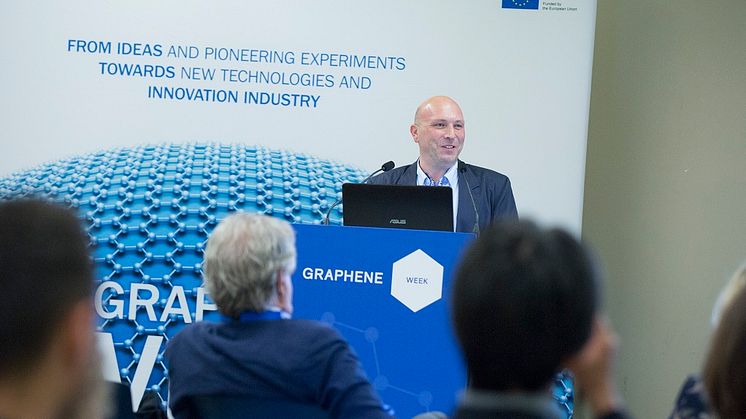
News -
Graphene Flagship Space Champion Carlo Iorio will advise EU ministers on space science
Graphene Flagship Space Champion Carlo Iorio will advise EU ministers on space science
Carlo Iorio, Senior Researcher at the Microgravity Research Centre at Graphene Flagship partner Université Libre de Bruxelles in Belgium, has been appointed by the European Commission as an expert on Defence Industry and Space (DEFIS).
Since 2020 Iorio has been the Graphene Flagship Space Champion. As a representative of the Graphene Flagship, Iorio drives innovation in the field, coordinating new and existing projects to bring graphene and related materials-based technologies to the forefront of space exploration.
Now, he has been appointed by the European Commission to advise policymakers and guide the future of research in this ever-expanding realm of science, technology and innovation.
“The need for innovative and robust materials has never been clearer,” begins Iorio. “On the ground, it is comparatively easy to repair or replace damaged components. But in space, it is not so easy. We need extremely reliable, durable and functional materials. This opens a world of opportunity for graphene and layered materials,” he continues.
Iorio outlines the most important things he believes scientists and policymakers should consider as we move towards the next generation of spacefaring vessels.
“Spacecraft need to be built from radiation and ageing-resistant materials. We need better materials for solar panels to generate electricity in space, more effective membranes to purify water and new devices to detect the concentration of gases like CO2. We could even develop more durable wheels for moon rovers, as they tend to be heavily corroded by lunar dust.”
With the advent of private-sector space travel, Iorio emphasises the need for reusable construction materials that can resist high temperatures without decomposing. “Building spacecraft from sacrificial materials is just not cost-effective. Many of the vessels to date are not reusable. There is a huge market opening for super-durable construction materials that can be reused after leaving and re-entering the Earth’s atmosphere.”
Iorio continues: “Carbon-based materials like graphene may offer interesting avenues. Graphene has a lot of potential for space applications, and I am keen to do my part in guiding the future of European space exploration.”

